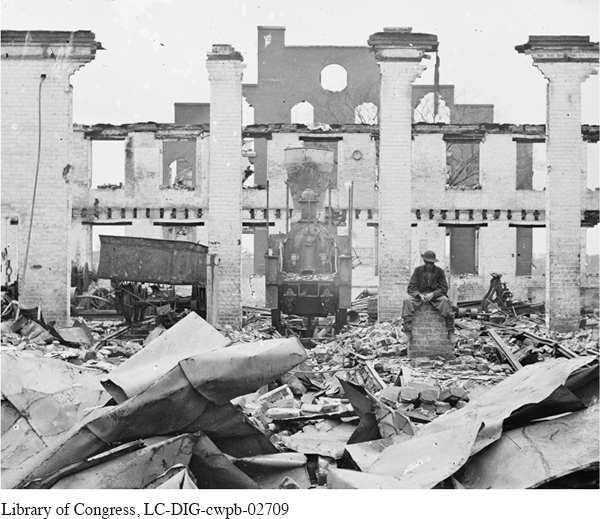The War Comes to an End
As the defeat of the Confederacy loomed, the U.S. Congress finally considered abolishing slavery throughout the nation. With intense lobbying by abolitionists, petitioning by the Women’s National Loyal League, and the support of President Lincoln, Congress passed the Thirteenth Amendment to the U.S. Constitution on January 31, 1865. It prohibited slavery and involuntary servitude anywhere in the United States. Some northern and western states had already enacted laws to ease racial inequities. Ohio, California, and Illinois repealed statutes barring blacks from testifying in court and serving on juries. Then, in May 1865, Massachusetts passed the first comprehensive public-accommodations law in U.S. history, ensuring equal treatment in stores, schools, theaters, and other social spaces. Cities from San Francisco to Cincinnati and New York also desegregated their streetcars.
Still hoping to stave off defeat, southern leaders also began rethinking their racial policies. The Confederate House passed a law to recruit slaves into the army in February 1865, but the Senate defeated the measure. It was too late to make a difference anyway.
In early April 1865, with Sherman heading toward Raleigh, North Carolina, Grant captured Petersburg, Virginia, and then drove Lee and his forces out of Richmond. Seasoned African American troops led the final assault on the city and were among the first Union soldiers to enter the Confederate capital. On April 9, after a brief engagement at Appomattox Court House, Virginia, Lee surrendered to Grant. Within hours, Lee’s troops began heading home. While sporadic fighting continued—Cherokee Stand Watie was the last Confederate general to surrender in June 1865—the back of the Confederate army had been broken.

With Lee’s surrender, many Northerners hoped that the reunited nation would be stronger and more just. Jubilation in the North was short-lived, however. On April 14, Abraham Lincoln was shot at Ford’s Theatre by a Confederate fanatic named John Wilkes Booth. The president died the next day, leading to great uncertainty about how peace and national unity would be achieved.
REVIEW & RELATE
What role did African Americans play in the defeat of the South? How did attitudes toward African Americans change in the final year of the war?
How did the Union win the war against the Confederacy while defeating Indians in the West?
Exploring American HistoriesPrinted Page 439
Exploring American Histories Value EditionPrinted Page 325
Chapter Timeline